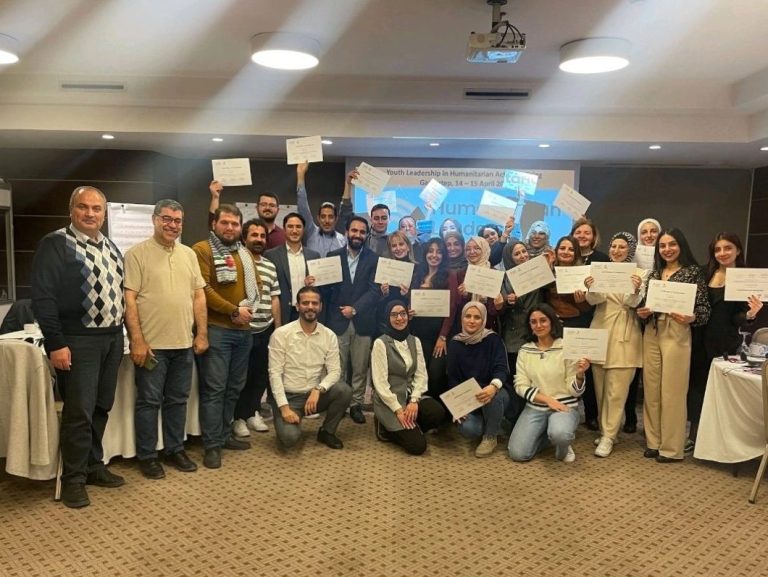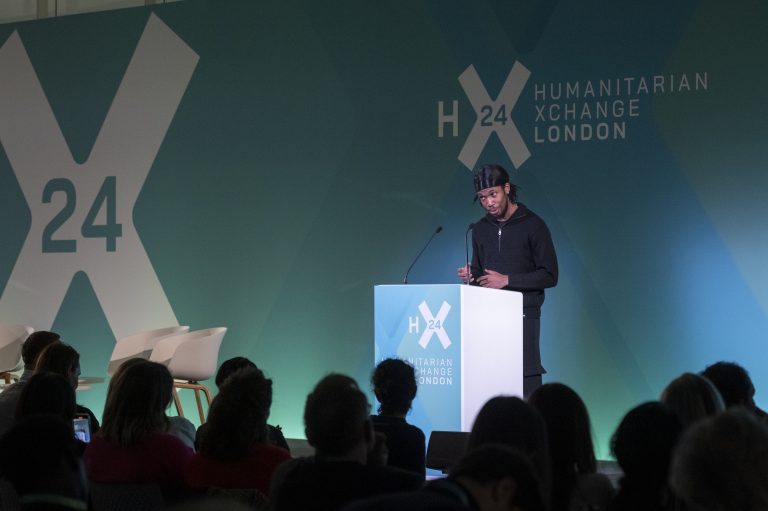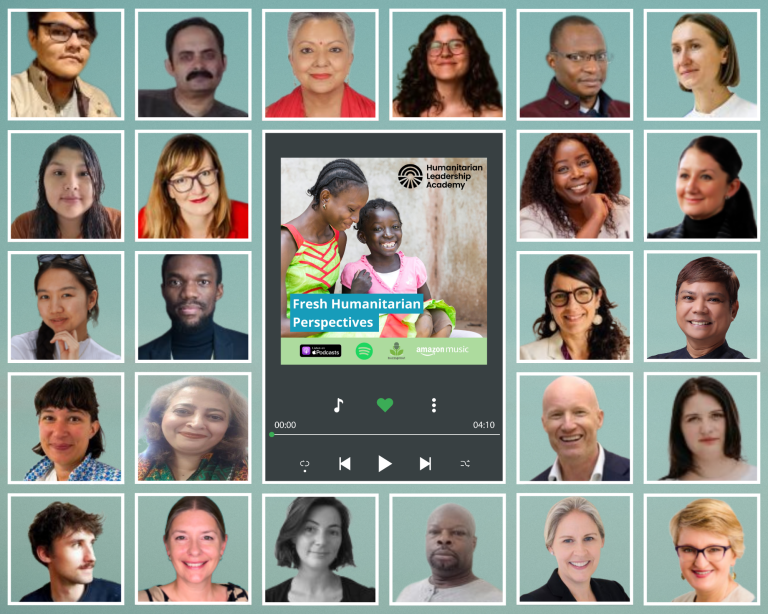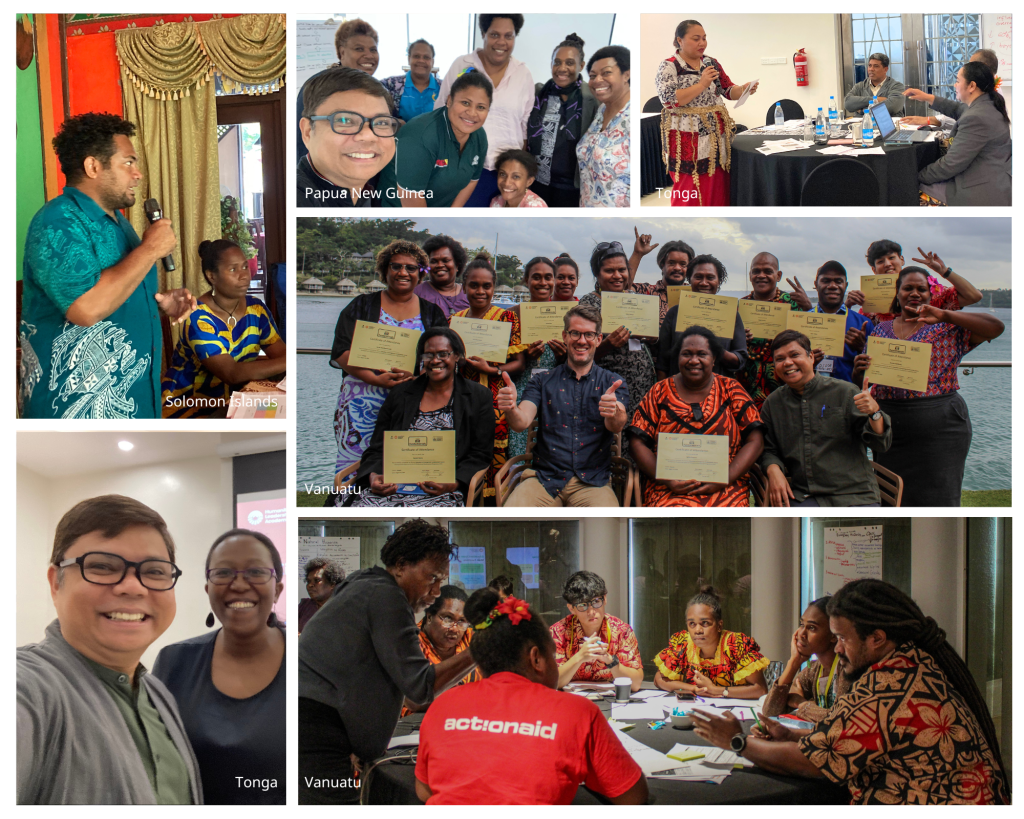
Education specialists from the HLA Asia Pacific Regional Centre and Save the Children recently collaborated to deliver a vital Education in Emergencies (EiE) training initiative in four Pacific Island nations.
The HLA’s flagship EiE Fundamentals course aims to equip country office education staff and members of the Education Cluster with the fundamental competencies of initiating, designing and implementing an EiE response in their context.
Supported by Save the Children Australia, this month-long tailored training initiative was led and delivered by the HLA’s Asia Pacific regional EiE expert Efren Lubuguin (pictured above, bottom left), with facilitation support from in-country colleagues.
The EiE Fundamentals programme was contextualised for the Pacific Islands and rolled out across Papua New Guinea, Solomon Islands, Vanuatu, and Tonga.
The training was designed to enhance the capacity of local education and government stakeholders in responding to climate-induced emergencies, which have become more frequent in recent years. The timing of the training was an important consideration, planned and delivered in readiness for the upcoming cyclone season in the region.
Delivered as a series of intensive three-day in-person workshops across the four countries, the training engaged a total of 72 participants who are working in education roles within local and international organisations, as well as government departments. Particular attention was paid to ensuring the training was accessible for all participants, including adaptations for those with accessibility needs.
EiE Fundamentals Pacific Islands training 2024 in numbers
4
nations
72
participants
120
total training hours across 4 countries
Participants included
65%
women
35 %
male
28
government representatives
A platform for dialogue on preparedness and response work in education
The training sessions provided an opportune moment for the sector to reflect their past and current initiatives on preparedness and response work in education, in the context of cyclical climate-induced emergencies that the countries have been experiencing in recent years.
Emerging as a result of the dialogue was a consensus that there is a crucial need for improved coordination in EiE service delivery and areas such as data collection for assessments, child safeguarding, referral pathways for mental health and psychosocial support (MHPSS) and teachers’ training in handling crises.
Participant feedback highlights
Across the four training sessions, participants praised the training content and approach, in particular the interactive nature of the workshops, and the training focus on a holistic and relevant range of topics for educators, including safeguarding, social-emotional learning (SEL), MHPSS, and gender analysis.
“This is the first time a partner is offering a training like this one and I hope that we can continue to run more trainings like this in future on trending themes to ensure that our activities in education are relevant to the changing times.”
– Participant in Papua New Guinea
“This training is super awesome. I learned a lot of new things with the team on child safeguarding and protection.”
– Participant in the Solomon Islands
“Really appreciate today’s session, especially understanding the connection between SEL and MHPSS. Well done to the two facilitators for today.”
– Participant in Vanuatu
Participants also reported that they would be able to directly apply this new-found knowledge to their work, particularly in response to climate-induced emergencies impacting the region.
“This training is a very important training opportunity as our country is experiencing a couple of natural disasters (landslide in Enga and earthquake in East Sepik). The humanitarian nexus is critical and this training is equipping me.”
– Participant in Papua New Guinea
“Well done on this session and learning from experience. The facilitator shared very useful EiE tools and can be applied to my field of work.”
– Participant in the Solomon Islands
Impact across the Pacific Islands
Efren Lubuguin, HLA Education in Emergencies Regional Professional Development Programme Manager for Asia, praised all involved – including Save the Children country office teams, and training participants from local and international organisations as well as representatives of government agencies – for coming together to create an impactful training experience.
Reflecting on the training in Papua New Guinea, Efren highlights the importance of the presence of the government partner, development partners like JICA and PNG Australia, other INGOs and national organisations.
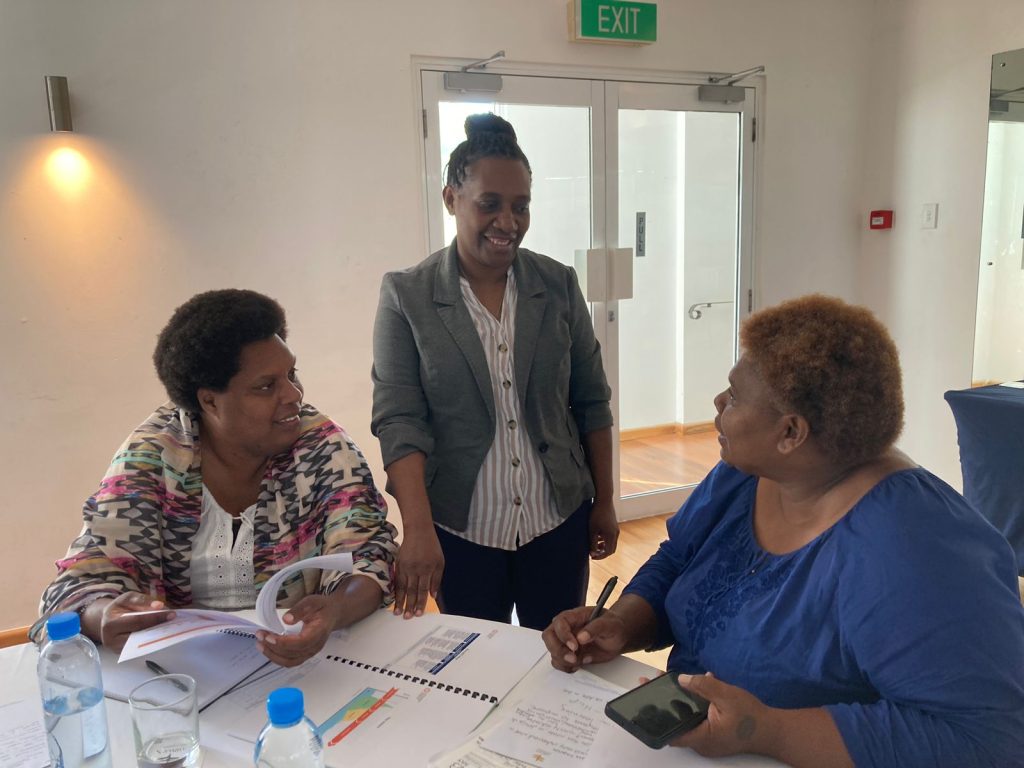
In the Solomon Islands, Efren commends the active participation of local organisations that Save the Children is working with.

The training became a platform where they can strengthen their coordination mechanisms and improve their service delivery in education during crisis through the three-day learning on child safeguarding and protection, EiE tools and strategies.
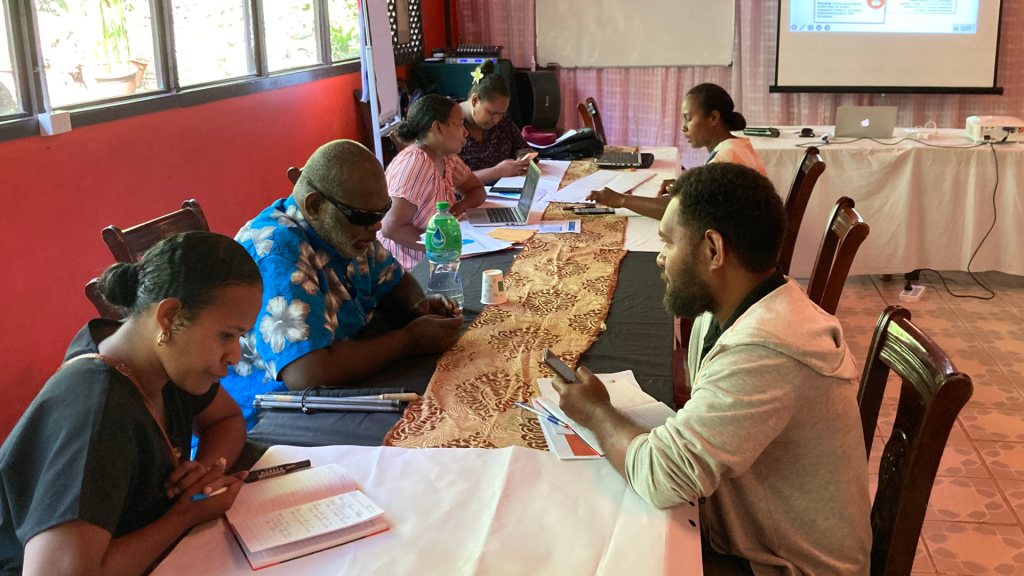
Similarly, in Vanuatu, Efren observed the strong relationships between Save the Children Vanuatu and government partners, INGOs, local organisations and international development partners within the education sector.
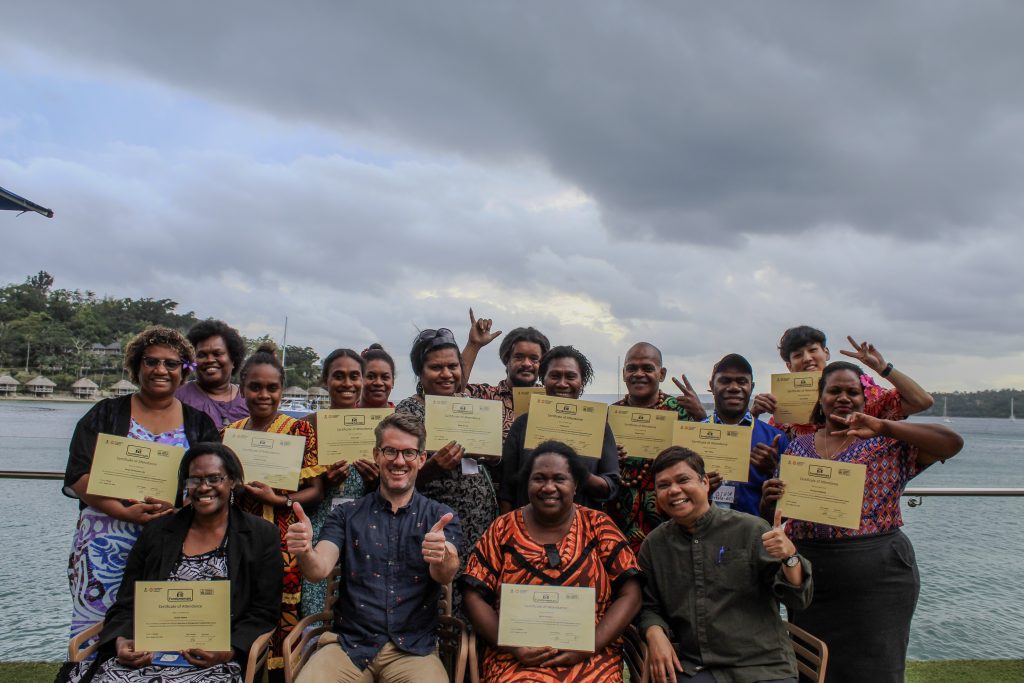
Meanwhile, in Tonga, Efren reported a highly successful training which provided an important platform to expand discussions on the Tonga School Safety Handbook that will be launched by the Ministry of Education, Save the Children under the Global Partnership for Education (GPE ) funded programme.
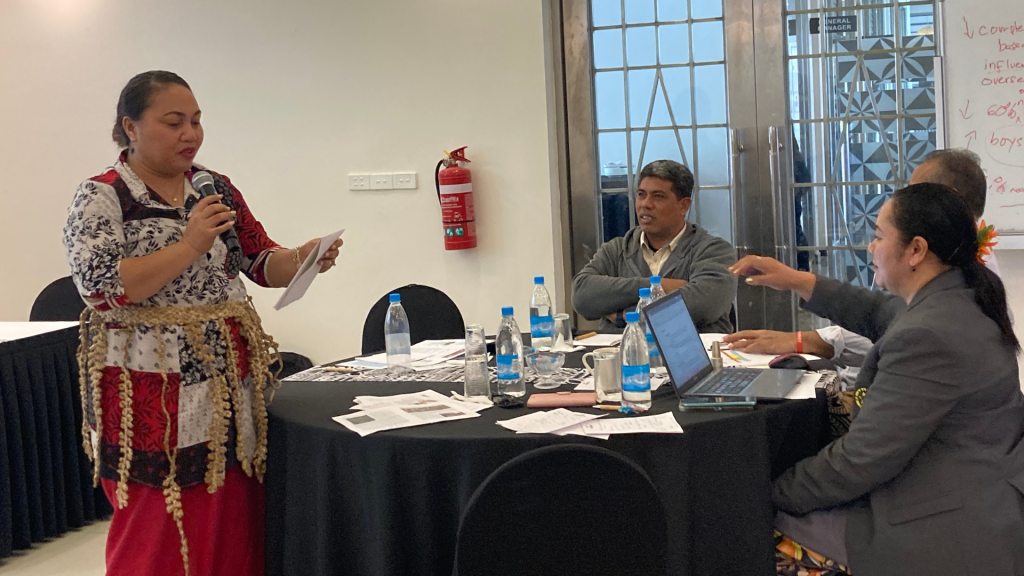
Further immediate outcomes from this workshop include the development of educator sector plans, and a commitment to review and update policies in key areas such as child safeguarding policies in local organisations, and the creation of sector-wide referral pathway on child protection and mental health support.
The HLA extends congratulations to all participants for their active engagement in this initiative. With thanks to Save the Children Australia and the People’s Postcode Lottery Education Trust for their generous support, and to colleagues from Save the Children Papua New Guinea, Solomon Islands, Vanuatu and Tonga for making this training possible.
You may also be interested in
Education in Emergencies Fundamentals in Papua New Guinea
Education in Emergencies
EiE online course
HLA Asia Pacific Regional Centre
